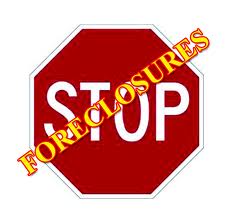Float or Lock your Mortgage Loan Interest Rate?
Minneapolis, MN: I get asked the should I float or lock question many times every week, and I generally have the same answer. Lock.
Watching the markets, and trying to figure out what the markets will do is an exercise in futility. There are simply too many reports, commentary, and data constantly being analyzed from every angle and perspective. The last 10-years, much of the talk has not matched the actual trading of bonds.
Interest rates change daily
During the time most home owners are in what lenders call a lockable position, which generally speaking, this means the timeframe after you’ve signed a purchase agreement, and about 10-days before your closing. You can’t lock a rate until you have the exact house, and eventually the lender has to finalize your approval and send out documents for your closing.
 Mortgage interest rates are likely to move up and down many times during this lockable period, which is usually 60-days or less. Rarely do we see rates make big moves, rather just small moves of 1/8th to 1/4 percent higher or lower during that period. A typical example week may be something like 4.625% on Monday, 4.75% on Tuesday, 4.625% on Wednesday, 4.50% of Thursday, and 4.625% again on Friday.
Mortgage interest rates are likely to move up and down many times during this lockable period, which is usually 60-days or less. Rarely do we see rates make big moves, rather just small moves of 1/8th to 1/4 percent higher or lower during that period. A typical example week may be something like 4.625% on Monday, 4.75% on Tuesday, 4.625% on Wednesday, 4.50% of Thursday, and 4.625% again on Friday.
Now if we KNEW what rates were going to do, we could easily just lock on this example Thursday. Unfortunately, no one has a crystal ball, and no one knows what mortgage rates are going to do.
Therefore my float or lock advice is to always lock your rate the moment you are able to lock, and never look back.
If you lock: You are OK with where mortgage rates are today, and how they relate to your loan payment. You are all done with this part of the home buying process, and don’t have anything to worry about. You can focus on other aspects of your new home. While rates may go down before you close, generally speaking it might only be 1/8th percent.
If you float: Mortgage Rates can go up, or rates can go down. If they go down, great – you win. If they go up, you lose. While rates may move before closing, generally speaking it is rare to see it move more than about 1/8th percent before closing. Sure, you would like a little lower rate, but you are stressing yourself worrying about rates. If 1/8th to 1/4 percent makes that much of a difference, you are probably buying a house you really can’t afford.
No one knows what interest rates are going to do. Lock, be happy, and don’t worry about it.

 5. Paying bad debt fixes your credit. Paying collections and charge off’s is always better, but paying them doesn’t make them go away. They still occurred, so they can still hurt. Standard late payments remain for up to 7-years. Bankruptcies and foreclosures remain for at least 10-years.
5. Paying bad debt fixes your credit. Paying collections and charge off’s is always better, but paying them doesn’t make them go away. They still occurred, so they can still hurt. Standard late payments remain for up to 7-years. Bankruptcies and foreclosures remain for at least 10-years.
 Mortgage interest rates are likely to move up and down many times during this lockable period, which is usually 60-days or less. Rarely do we see rates make big moves, rather just small moves of 1/8th to 1/4 percent higher or lower during that period. A typical example week may be something like 4.625% on Monday, 4.75% on Tuesday, 4.625% on Wednesday, 4.50% of Thursday, and 4.625% again on Friday.
Mortgage interest rates are likely to move up and down many times during this lockable period, which is usually 60-days or less. Rarely do we see rates make big moves, rather just small moves of 1/8th to 1/4 percent higher or lower during that period. A typical example week may be something like 4.625% on Monday, 4.75% on Tuesday, 4.625% on Wednesday, 4.50% of Thursday, and 4.625% again on Friday.


